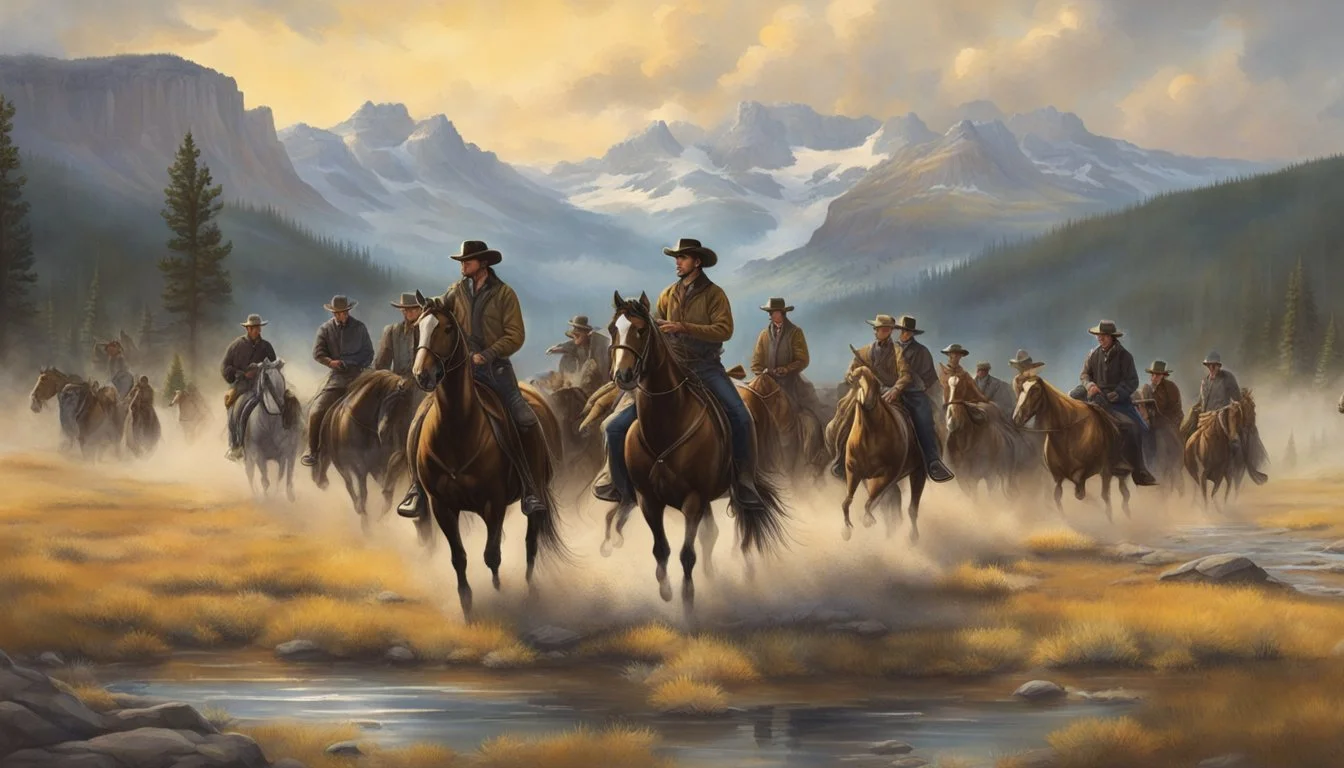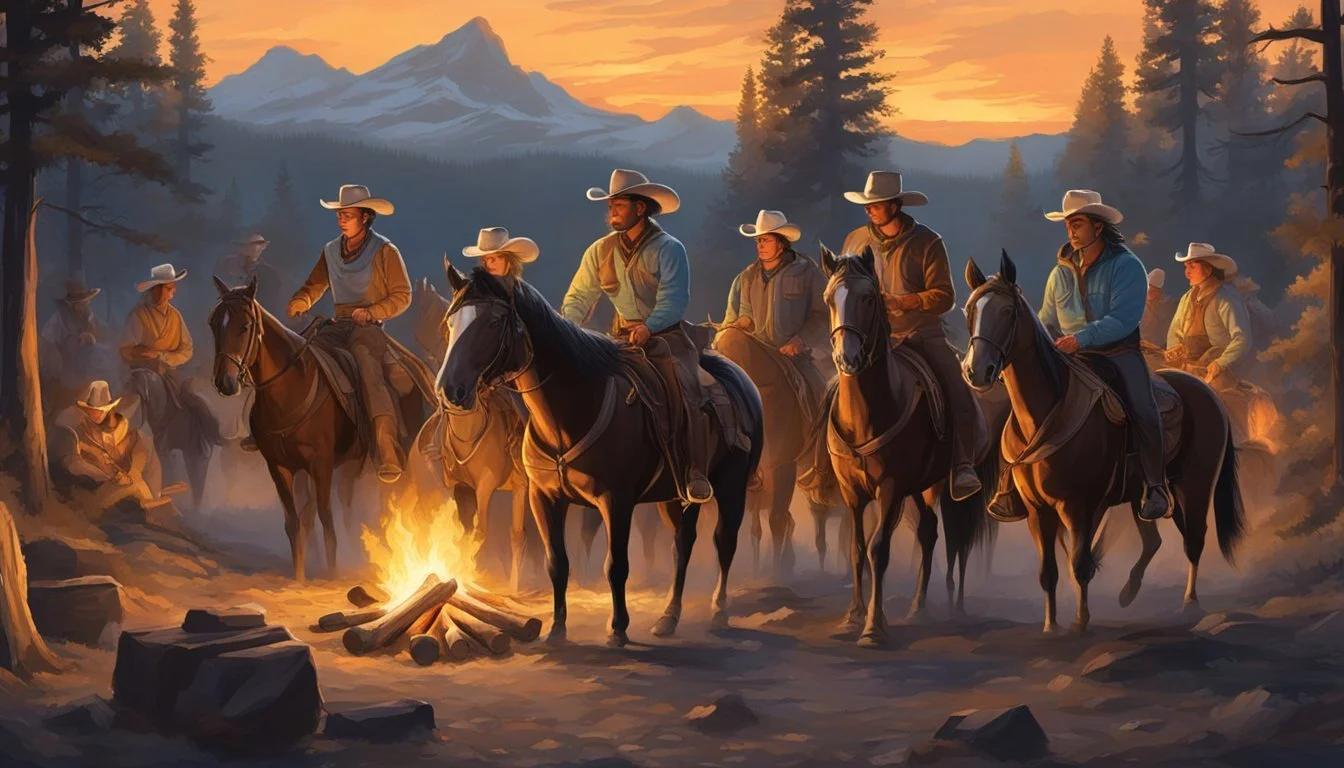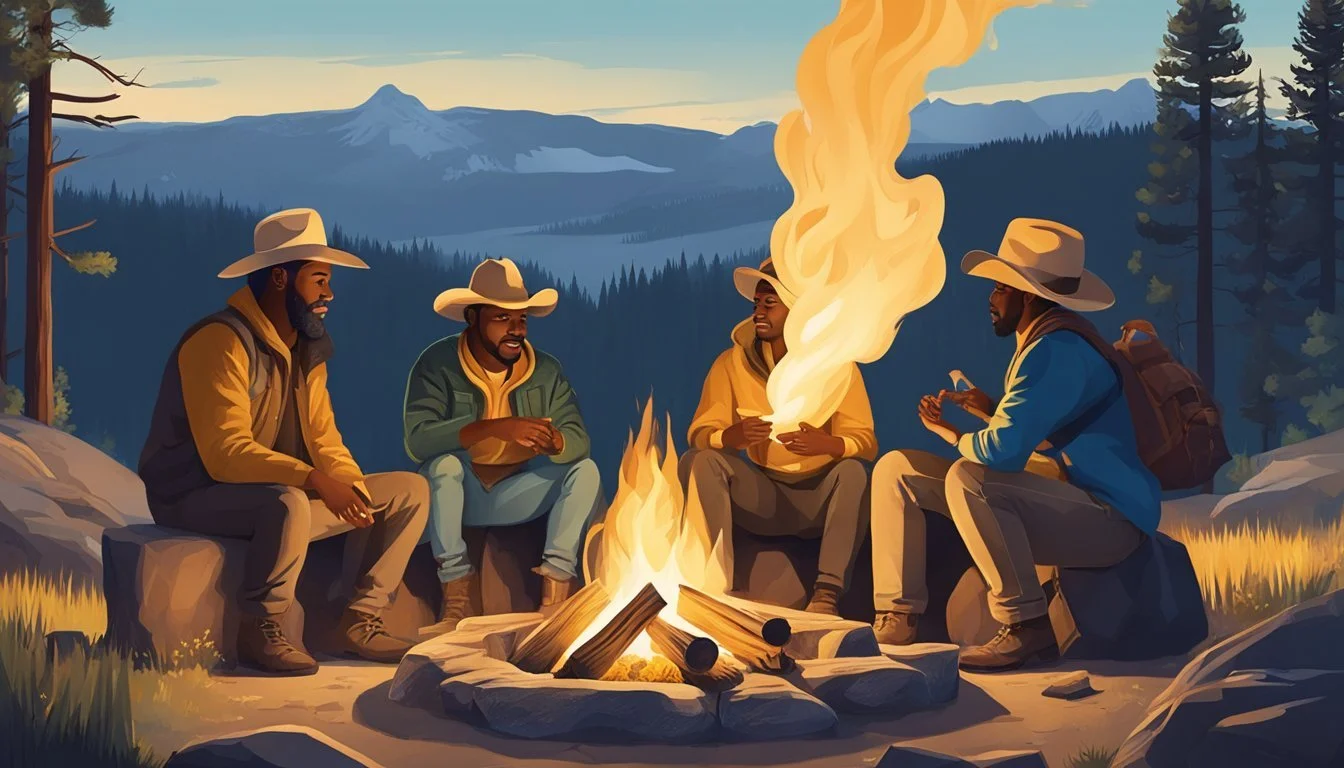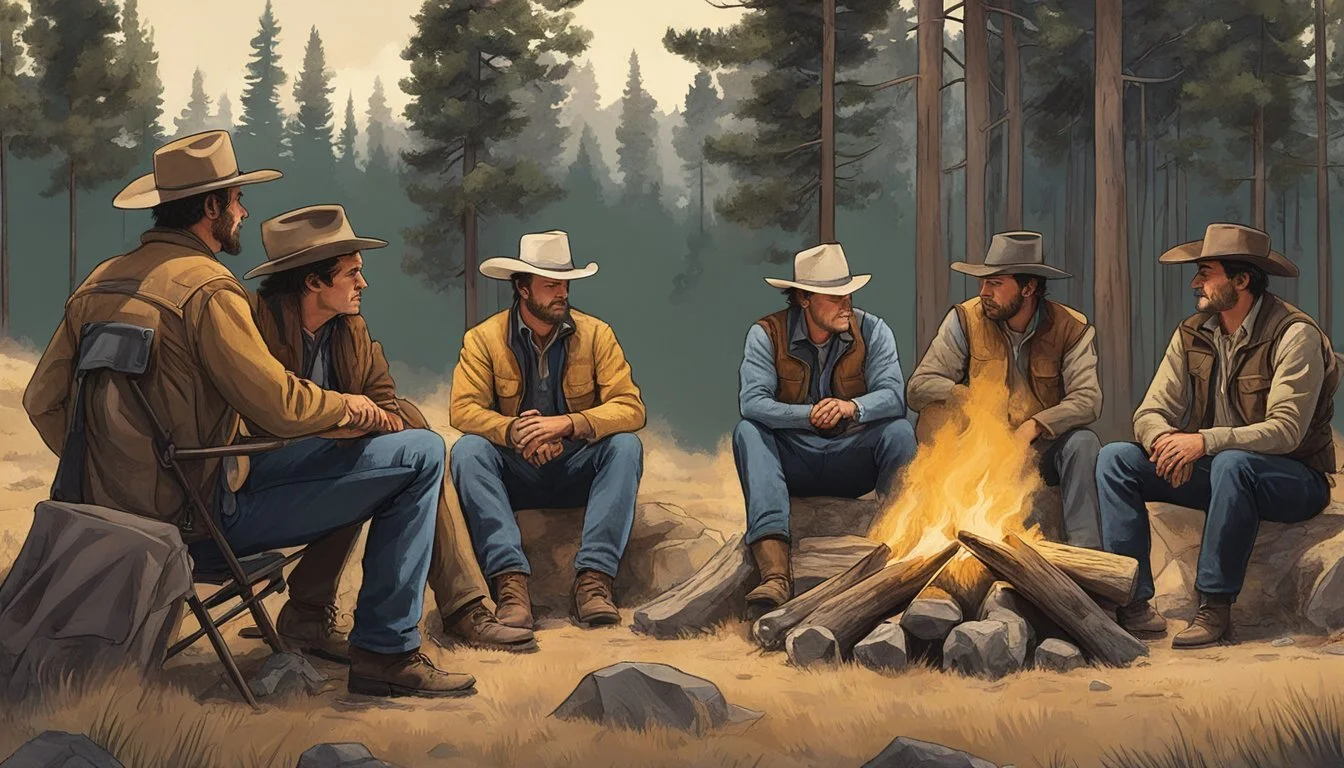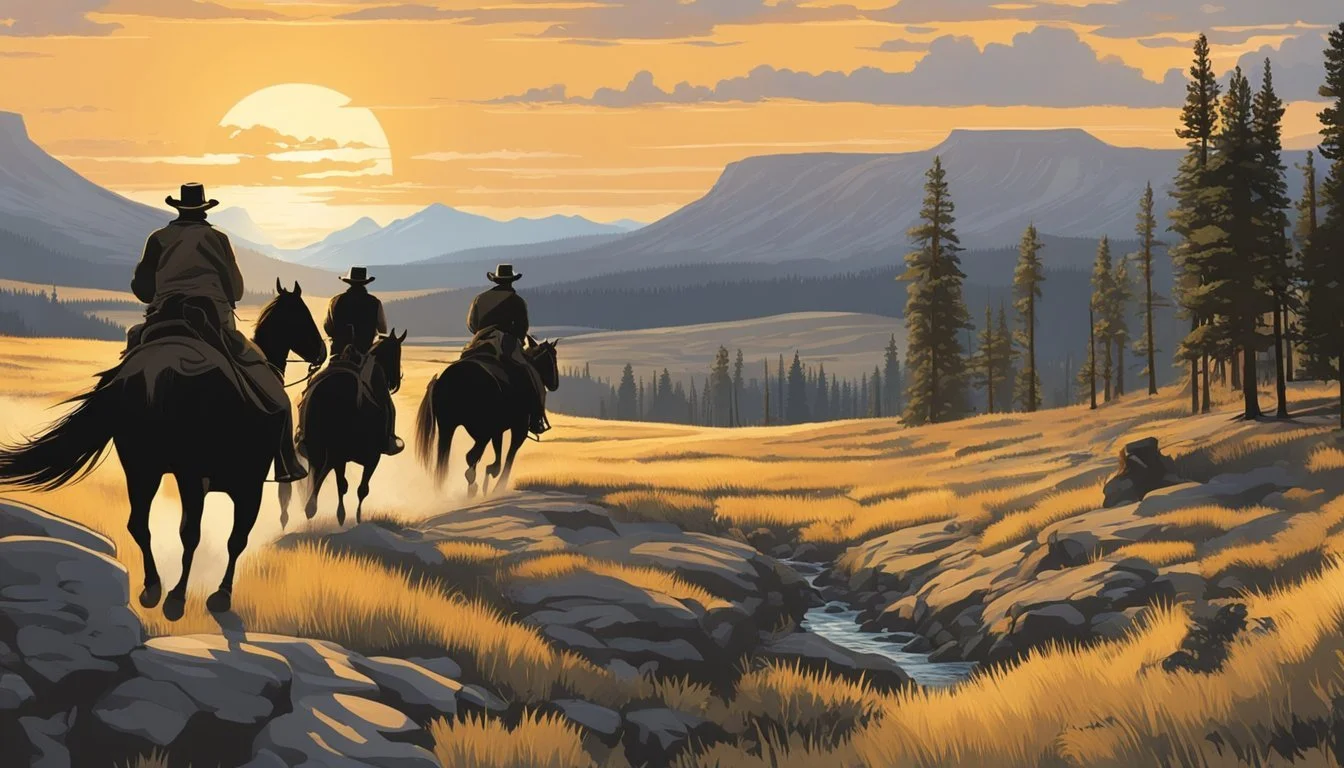Unraveling the Secrets Behind the Iconic Yellowstone Show Symbol That Captivates Fans
The iconic Yellowstone logo, featuring a distinctive "Y" design known as the Hooked Rocking Y, has become synonymous with the hit TV series. This symbol represents the Dutton family's ranch and serves as a powerful emblem of loyalty, ownership, and connection to the land.
The Yellowstone brand holds deep significance within the show's universe, symbolizing commitment and sacrifice among the ranch's key characters. It appears prominently on the roof of the main barn, ranch vehicles, and as a physical brand on livestock and trusted ranch hands. This visual motif reinforces the themes of family, legacy, and the struggle to maintain control over vast stretches of Montana rangeland.
Created by Taylor Sheridan and John Linson, Yellowstone has captivated audiences with its neo-Western drama set against the backdrop of modern American ranching. The show, starring Kevin Costner as patriarch John Dutton, explores complex family dynamics and conflicts over land rights. The Yellowstone symbol has transcended the screen, becoming a recognizable icon that encapsulates the essence of this Paramount Network series.
Overview of Yellowstone
Yellowstone is a gripping neo-Western drama series that has captivated audiences since its debut in 2018. The show centers on the powerful Dutton family and their struggles to maintain control of their vast Montana ranch.
Concept and Creation
Taylor Sheridan and John Linson created Yellowstone, drawing inspiration from the changing landscape of the American West. The series aims to explore themes of land development, family legacy, and political power struggles in modern-day Montana.
Paramount Network greenlit the show in 2017, recognizing its potential to attract viewers with its unique blend of Western elements and contemporary issues. Sheridan's vision for Yellowstone was to create a cinematic television experience that would resonate with audiences across the country.
Premise and Setting
Yellowstone takes place on the fictional Dutton Ranch, the largest contiguous ranch in the United States. The sprawling property borders Yellowstone National Park, adding to its picturesque appeal and strategic importance.
The show's premise revolves around the Dutton family's efforts to protect their land from various threats, including land developers, Native American reservations, and national parks. This constant struggle sets the stage for intense conflicts and complex alliances.
Montana's rugged landscape serves as a character itself, with breathtaking scenery providing a stunning backdrop for the unfolding drama.
Cast and Characters
Kevin Costner leads the ensemble cast as John Dutton, the patriarch of the Dutton family and owner of the Yellowstone Dutton Ranch. His commanding presence anchors the show and drives many of its central storylines.
John's children play crucial roles in the family dynamic:
Beth Dutton (Kelly Reilly): A fierce and intelligent businesswoman
Kayce Dutton (Luke Grimes): A former Navy SEAL torn between family loyalty and his own path
Jamie Dutton (Wes Bentley): An ambitious lawyer with a complicated relationship to the family
Rip Wheeler (Cole Hauser), the ranch foreman and John's right-hand man, adds depth to the cast with his unwavering loyalty and complex past.
Symbols and Meanings
The Yellowstone TV show employs powerful symbols to convey deeper meanings about loyalty, ownership, and connection to the land. These symbols are woven throughout the series, adding layers of significance to the characters and their actions.
Yellowstone Brand
The Yellowstone brand is a distinctive mark that represents the Dutton family's legacy and power. It features a hooked rocking Y design, which serves as a visual identifier for the ranch. This symbol appears on livestock, vehicles, and buildings associated with the Dutton property.
The brand holds immense importance within the show's narrative. It signifies ownership and belonging, marking both animals and people as part of the Dutton empire. Ranch workers who bear this brand demonstrate unwavering loyalty to the family.
John Dutton, as the patriarch, wields the branding iron to bestow this mark of allegiance. The act of branding is portrayed as a solemn and significant ritual, often accompanied by intense emotions and personal sacrifices.
Dutton Ranch Logo
The Dutton Ranch logo, synonymous with the Yellowstone brand, is a key visual element in the series. Its design incorporates the hooked rocking Y, creating a memorable and iconic emblem.
This logo represents more than just a business entity. It embodies the Dutton family's history, values, and connection to their ancestral lands. The logo's presence on various items throughout the show serves as a constant reminder of the family's influence and territorial claims.
Characters like Rip Wheeler and Jimmy Hurdstrom display unwavering dedication to the logo and all it represents. Their actions and choices often revolve around protecting and upholding the reputation associated with this symbol.
Significance of Branding
Branding in Yellowstone carries profound symbolic weight. It goes beyond marking livestock to become a rite of passage for ranch workers. The branding ritual signifies a deep commitment to the Dutton family and their way of life.
Characters like Walker undergo this intense process, accepting the brand as a mark of honor and loyalty. The act of branding represents a transformation, binding the individual to the ranch's fate and fortunes.
This practice also highlights the power dynamics within the show. Those who bear the brand are expected to prioritize the ranch's interests above all else. The branded workers form a tight-knit community, bound by their shared experience and dedication to the Dutton cause.
Cultural and Social Themes
Yellowstone explores deep-rooted cultural and social themes that resonate with American audiences. The show delves into complex dynamics of family, loyalty, and tradition against a backdrop of modern challenges.
Loyalty and Belonging
The Yellowstone ranch serves as a crucible for loyalty and belonging. Ranch hands like Rip, Walker, and Jimmy form a tight-knit community, bound by their dedication to the Dutton family and the land. The iconic branding ritual symbolizes this commitment, with ranch workers receiving the "Y" brand as a mark of acceptance.
This initiation process highlights the show's emphasis on tribal mentality and the need for belonging in a changing world. The branded ranch hands demonstrate unwavering loyalty, often at great personal cost.
Social media discussions frequently revolve around these intense displays of allegiance, sparking debates about the nature of loyalty in modern America.
Traditions and Representations
Yellowstone portrays ranching traditions and cowboy culture with a mix of reverence and scrutiny. The show depicts time-honored practices like cattle branding, horseback riding, and rodeo participation.
These representations resonate with viewers nostalgic for an idealized American West. However, the series also explores the tensions between these traditions and contemporary realities.
The show's portrayal of Native American characters, such as Thomas Rainwater, adds depth to its exploration of cultural conflicts. It highlights the ongoing struggles of Indigenous communities in the face of land disputes and economic pressures.
Modern Western Lifestyle
Yellowstone presents a neo-Western drama that blends traditional cowboy imagery with modern complexities. The Dutton family's lifestyle embodies this fusion, showcasing both rustic ranch work and high-stakes business dealings.
The show addresses current issues facing the American West, including environmental concerns, tourism impacts, and land development pressures. These themes reflect real-world challenges to ranching communities across the USA.
Yellowstone's popularity has influenced fashion trends, with viewers embracing Western-inspired clothing. It has also boosted tourism to Montana and other Western states, as fans seek to experience the lifestyle portrayed on screen.
Character Analyses
Yellowstone's complex cast of characters drives the show's gripping narrative. Their motivations, relationships, and conflicts create a rich tapestry of drama set against the backdrop of the Dutton ranch.
The Dutton Family
John Dutton leads the powerful Dutton clan as the patriarch and owner of the largest contiguous ranch in the United States. His children - Beth, Kayce, and Jamie - each play crucial roles in the family's struggles to maintain control of their land.
Beth Dutton, John's fiercely intelligent and ruthless daughter, serves as a formidable force in business dealings and family matters. Her sharp wit and cunning tactics often put her at odds with enemies of the ranch.
Kayce Dutton, a former Navy SEAL, balances his loyalty to the family with his own moral compass. His relationship with his Native American wife adds complexity to the Duttons' interactions with the nearby reservation.
Bunkhouse Dynamics
The bunkhouse serves as a microcosm of the larger ranch, housing a diverse group of cowboys and workers. Rip Wheeler, the loyal ranch foreman, leads this group with unwavering dedication to the Duttons.
Lloyd Pierce, a veteran cowboy, provides wisdom and stability to the younger ranch hands. His long-standing relationship with the Dutton family makes him a trusted advisor and father figure to many.
Jimmy Hurdstrom's journey from inexperienced ranch hand to competent cowboy showcases the transformative power of life on the Yellowstone. His growth reflects the harsh realities and potential for redemption found on the ranch.
Adversaries and Allies
The Duttons face numerous threats from outside forces seeking to claim their land or power. Wade Morrow, a former Yellowstone ranch hand turned enemy, represents the potential for betrayal and the long memory of past conflicts.
Tribal Chairman Thomas Rainwater emerges as a complex adversary, fighting for his people's interests while navigating a delicate relationship with the Duttons. His alliance with Dan Jenkins creates additional pressure on the ranch.
Market Equities, led by the ruthless Roarke Morris and later Carolyn Warner, presents a modern threat to the Duttons' way of life. Their attempts to develop the land surrounding the Yellowstone create high-stakes conflicts that test the family's resolve.
Impact and Reception
Yellowstone has made an indelible mark on television and popular culture. The series' influence extends far beyond entertainment, shaping perceptions of the modern American West and sparking widespread engagement.
Media and Popularity
Yellowstone's popularity has skyrocketed since its debut. The show consistently draws millions of viewers, with Season 4's premiere attracting over 14 million fans. This success has made it the most-watched cable series.
Social media buzz around Yellowstone is intense. Fans eagerly discuss plot theories and character developments across platforms. The show trends regularly during new episode airings.
Paramount Network has capitalized on this popularity. They've expanded the Yellowstone universe with spin-offs like "1883" and "6666".
Merchandise and Tourism
Yellowstone's impact extends into consumer products and travel. Official merchandise includes clothing, home decor, and accessories featuring the iconic "Y" brand logo.
The show has boosted tourism in Montana and other filming locations. Fans flock to experience the landscapes and lifestyle depicted on screen.
Local businesses have created Yellowstone-themed tours and experiences. These range from horseback rides to stays in luxury ranches similar to the Dutton property.
Influence on Modern Westerns
Yellowstone has revitalized the Western genre for television. Its success has paved the way for other neo-Western dramas like "Walker" and "Joe Pickett".
The show's portrayal of modern ranch life and conflicts over land use has sparked conversations about the changing American West. It's influenced how viewers perceive rural values and traditions.
Yellowstone's cinematic style and complex character dynamics have set a new standard for television Westerns. This has encouraged networks to invest in similar high-quality productions.
Yellowstone and Symbolism
The hit TV series Yellowstone masterfully weaves symbolism throughout its narrative, enriching the storytelling and deepening character development. Symbols and metaphors permeate the show, touching on themes of legacy, redemption, and the complex relationship between humans and nature.
Second Chances and Redemption
Yellowstone offers a nuanced exploration of second chances and redemption. Characters like Ryan, who joins the ranch as a branded man, exemplify this theme. The ranch itself serves as a place of new beginnings for those seeking to turn their lives around.
The infamous "train station" represents both an ending and a twisted form of redemption. It's where the Duttons dispose of their enemies, but also where some characters meet their fate after betraying the family.
Loyalty is heavily emphasized, with the Yellowstone brand symbolizing an unbreakable commitment to the Dutton family and their way of life.
Ranch as a Symbol of Legacy
The Yellowstone Dutton Ranch stands as a powerful symbol of legacy and ownership. The iconic "Y" brand, known as the Hooked Rocking Y, represents more than just a cattle marker. It embodies the Dutton family's deep connection to the land and their determination to preserve their heritage.
The vast property symbolizes both freedom and responsibility. For the Duttons, the ranch is not merely land but a living entity that demands protection and stewardship.
This symbol of legacy extends beyond the family, encompassing all who work on the ranch and bear its mark. It represents a shared identity and purpose.
Motifs and Recurring Themes
Wolves feature prominently in Yellowstone as a multifaceted symbol. They represent the wild, untamed nature that the ranch both confronts and seeks to preserve. Wolves also symbolize the constant threats facing the Dutton empire.
The changing seasons serve as a motif for the cyclical nature of life on the ranch. Spring brings renewal, while harsh winters test the characters' resilience.
Natural landmarks like mountains and rivers are recurring visual symbols. They underscore the ranch's beauty and reinforce the characters' connection to the land.
The contrast between modern development and traditional ranching life is a recurring theme, symbolizing the ongoing struggle to maintain the Dutton way of life in a changing world.

